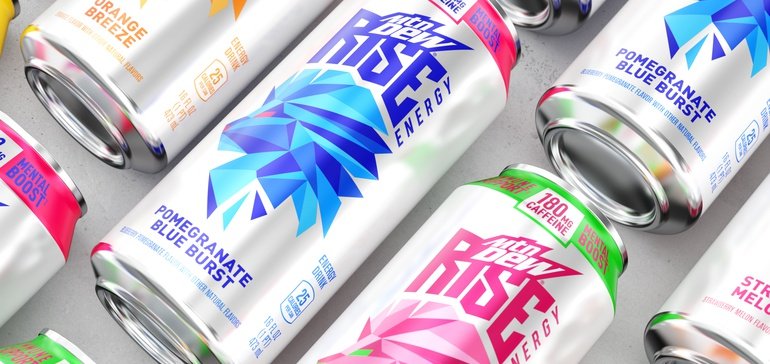PepsiCo temporarily barred from using ‘Rise’ branding in trademark dispute

Dive Brief:
- PepsiCo cannot use the word “Rise” in the naming of its Mtn Dew Rise Energy drinks after a federal judge granted a preliminary injunction in favor of a ready-to-drink coffee startup that sued the beverage giant for trademark infringement. In her opinion, U.S. District Court Judge Lorna Schofield said plaintiff Rise Brewing will likely succeed in proving that its trademark is valid and that PepsiCo was causing confusion among consumers with its product’s branding.
- PepsiCo debuted Mtn Dew Rise Energy, a line of energy drinks targeting the morning daypart, in March. After what it described as unsuccessful attempts at resolving the issue, Rise Brewing Co. filed a lawsuit in June against PepsiCo for copying the branding of its RTD coffee and causing confusion over who the maker is for its products, which also target morning caffeine drinkers. Both Mtn Dew Rise Energy and the coffee company’s cans feature logos with the word “rise” in all capital letters.
- In its lawsuit, Rise Brewing described the beverage giant as “a repeat trademark offender.” This marks the third time in the past year in which PepsiCo has fought trademark infringement allegations from small brands over products it designed to expand into promising beverage segments and usage occasions.
Dive Insight:
Founded in 2014, New York-based Rise Brewing has a product line that includes shelf-stable nitro cold brew coffees, teas and oat milk-based lattes, sold through its web site, Amazon and at retailers including Walmart, Kroger and Whole Foods Market.
When Rise Brewing filed its lawsuit against PepsiCo, co-founder and CEO Grant Gyesky noted in a statement the time and expense his company spent building the branding around its organic RTD coffees. “PepsiCo’s competing Rise product is already causing consumer confusion, threatening to wipe out the goodwill that we’ve been tirelessly working to build for nearly a decade,” he said.
PepsiCo and Rise Brewing did not respond to a request for comment as of press time.
On its face, one could question the potential for confusion, as Mtn Dew Rise Energy is not a coffee beverage. It is flavored with fruit juice and highlights its low calories, vitamins, antioxidants and functional ingredients such as citicoline and zinc.
But in its lawsuit, Rise Brewing had documented several alleged instances where its product and Mtn Dew Rise Energy had been mistaken for each other. In addition to the two products being merchandised in the same aisle at some grocery locations, the company noted examples where store managers and employees confused the two brands, or assumed a business relationship between PepsiCo and Rise Brewing. Rise Brewing said before the legal fight, it had been in discussions with PepsiCo about a potential business partnership, which never materialized.
In her opinion on the preliminary injunction, Schofield said Rise Brewing had shown it would likely succeed proving two parts of its federal copyright claim: that it has a valid mark entitled to protection and that PepsiCo’s actions were “likely to cause confusion with [that] mark.”
While PepsiCo offered consumer survey evidence it claimed showed there was not confusion, Schofield said “survey results may be particularly unreliable” because the two products had only been available together to consumers for a short period of time.
The case marks the latest in a string of accusations among small brands against PepsiCo for copying concepts, branding and trademark infringement. In June, two sparkling water startups — Droplet and Dram — told Business Insider that PepsiCo had lifted elements of their products for its Soulboost functional sparkling beverage.
PepsiCo also faced a lawsuit from Mexico-based Laboratorios Pisa SA, which sued the maker of Gatorade for infringing on the trademark of its Electrolit beverage with its new Gatorlyte hydration line. In March, a judge dismissed the lawsuit after a confidential deal was struck to settle the case for an undisclosed amount, and PepsiCo officially debuted Gatorlyte in May.
Source: fooddive.com

